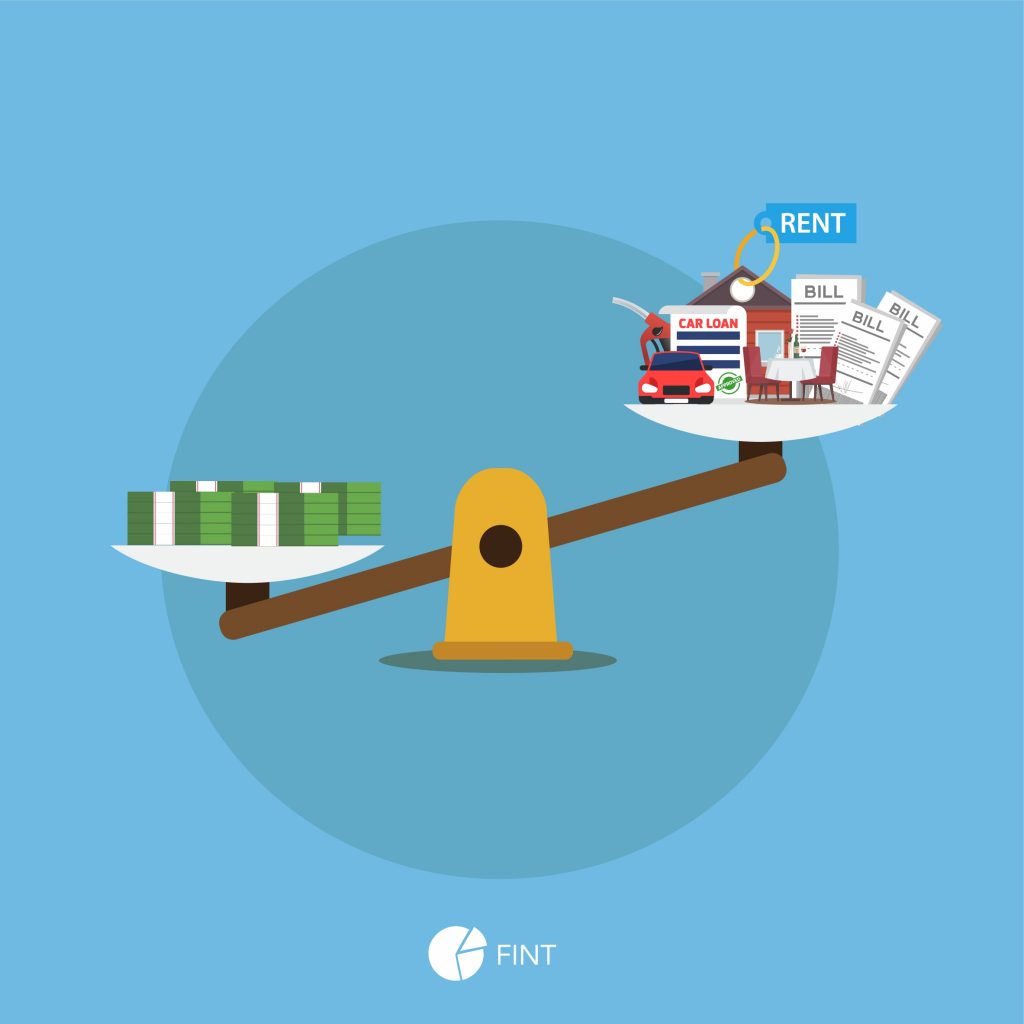
One of our colleagues was on the phone the other day having what seemed like a heated argument with a relative on bad spending habits. From her side of the conversation, it seemed like the relative was asking for some financial assistance and this colleague of ours was refusing to help because she had helped too often. For the sake of our readers and the potential learning curve for us all, we owned up to our lack of respect for her privacy and just asked her what happened. Luckily, she was willing to share.
Apparently, this relative earns about N250,000 a month but can never seem to make ends meet. According to our colleague, the only reason is that she has far too many ‘ends’ that she does not need. She services a loan against her N850,000 rent at N80,000 per month; she is constantly dining out with friends who earn far more than she does; she overspends when she buys presents; and she does not know how to say ‘NO’ when someone asks her already leveraged self for a loan. Essentially, she blows through cash and constantly falls back on family, friends and salary advances to keep up with other necessary expenses.
As our colleague narrated this story, many of us turned our eyes away in shame lest someone recognize just how similar our situations are to this. So, we decided to ask ourselves a few questions that could explain why financial freedom seems so elusive for this relative (*cough cough*). We will paint a few possibilities.
What does your monthly budget look like?
Possibility A – Maybe this relative draws up a budget every month but does not properly document all her expenses. For instance, things like airtime, data, church offerings, alms, taxi rides, random purchases of fruits, car wash fees, etc., usually slip through the cracks when most people create their monthly budgets. Rather than fit these under the appropriate buckets, they just don’t feature anywhere and erode monies slowly.
Possibility B – She has a properly categorized budget but lacks the discipline to stick to it.
Possibility C – She has NO budget and all. As long as she sees money, she spends it; and when there is no more, she looks for where she can find it and spends that too.
Our Solution – She should adopt a rule of budgeting like the 50-30-20 rule where 50% goes on all necessary expenditure, 20% goes to servicing loans (although she may have to move houses to make this possible) and 30% goes to all her wants and desires. Of course, this is not a hard and fast rule and can be tweaked based on different situations and experiences. It does, however, put spending into a clearer perspective that can be more easily managed.
How do you deal with emergencies?
Possibility A – Borrow for car repairs, health challenges, home repairs, etc.
Possibility B – Accumulate debt with various vendors until they start to threaten bodily harm.
Our Solution: While we believe there is something called good debt – our stock in trade – we recognize that borrowing should not be done on a whim. Are you trying to fund a capital project? Borrow with FINT. Are you trying to go to school and increase your productivity? Borrow with FINT? Can your income conveniently cover a loan repayment without it being stretched? Borrow with FINT.(only employees of partnered companies are eligible) Otherwise, save towards emergencies and get as much insurance as you can – life, health, car, home, fire, etc.
When you happen to have surplus cash, what do you do with it?
Possibility A – Blow it all!!! #YOLO
Possibility B – Yeah, A is the most likely answer.
Our Solution: Windfalls of cash are great opportunities to pay off outstanding debt. However, we think a good option is to also invest immediately. If by chance you have an unexpected N20,000 or more, you should come to the FINT platform and sign up as a lender and earn up to 39% returns; trust us, it feels good to be on the other side of the equation. Learn more about being a Lender
Certainly, these are not the only issues to deal with, but we strongly believe that if our colleague’s relative start with these, she won’t have to bear insults from her family members for much longer; same goes for the rest of us.
How do you plan your income?
